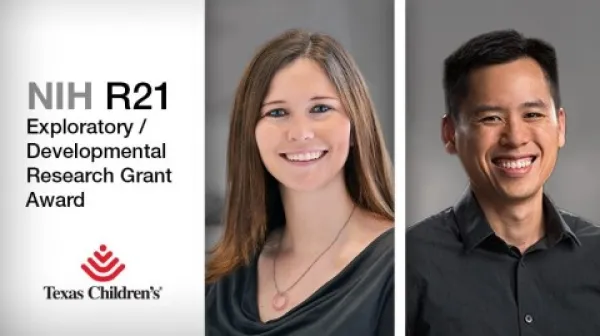Andrew Yee, PhD
- Cancer and Blood Disorders

Assistant Professor, Department of Pediatrics, Division of Hematology-Oncology, Baylor College of Medicine
Adjunct Assistant Research Professor, Life Sciences Institute, University of Michigan
Office location:
1102 Bates Avenue
Houston, TX 77030
Get to know Andrew Yee, PhD
Dr. Yee’s research focuses on hemostasis, which can be thought of as a balance between bleeding and clotting. Abnormalities in the structure or expression of key hemostatic factors, as well as proteins associated with inflammation, lead to uncontrolled bleeding or excessive clotting (thrombosis).
Without intervention, bleeding and thrombosis can lead to debilitating complications. However, current treatments have risks, can be challenging to manage, and are not always efficacious. Dr. Yee and his team use molecular and biochemical approaches to determine how abnormal hemostatic factors and inflammatory proteins may impair the regulation of hemostasis.
With a deeper understanding of the disease mechanisms in hemostasis, Dr. Yee and his team aim to identify targets for novel therapies.
Education
| School | Education | Degree | Year |
|---|---|---|---|
| University of Michigan | Post-doctoral Fellowship | Research Training | 2012 |
| Rice University | PhD | Doctor of Philosophy, Chemical Engineering | 2006 |
| Rensselaer Polytechnic Institute | Bachelors | Bachelor of Science, Chemical Engineering | 2000 |
Organizations
| Organization Name | Role |
|---|---|
| American Society of Hematology (ASH) | Member |
| International Society on Thrombosis and Haemostasis | Member |
Honors and awards
- 2020
-
Scholar Award, American Society of Hematology
* Texas Children’s Hospital physicians’ licenses and credentials are reviewed prior to practicing at any of our facilities. Sections titled From the Doctor, Professional Organizations and Publications were provided by the physician’s office and were not verified by Texas Children’s Hospital.
Highlights
Research Area:
Hemostasis and Thrombosis
The balance between bleeding and clotting must be carefully maintained to ensure proper blood function. The blood clotting protein, von Willebrand factor (VWF), critically contributes to this balance. Functional deficits in VWF can lead to extensive blood loss while overactivity can lead to undesired blood clots that block major blood vessels. The molecular determinants of VWF activity are highly variable.
Dr. Yee's current research aims to determine the functional consequences of all variations in VWF using novel methodologies that may be applied to other blood clotting factors. The goals of this research are to more accurately predict outcomes in patients with bleeding or clotting disorders and to develop novel therapeutics to prevent hemorrhagic or thrombotic complications.
Research Interests
von Willebrand Factor
Hemostasis
Thrombosis
Inflammation
